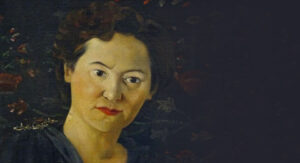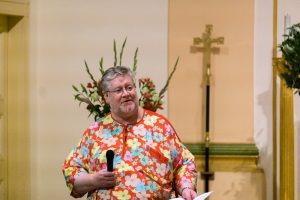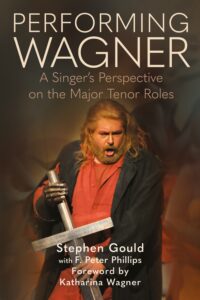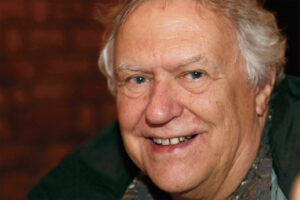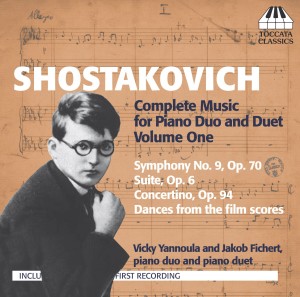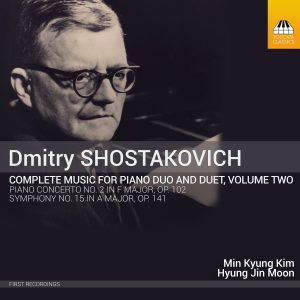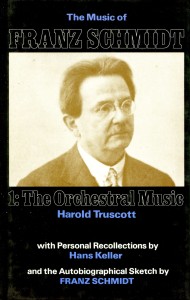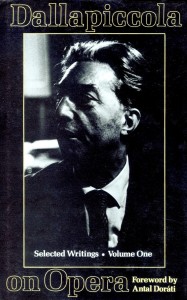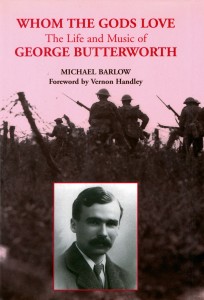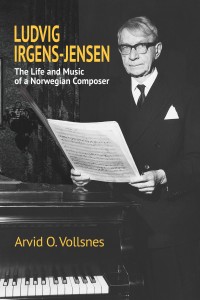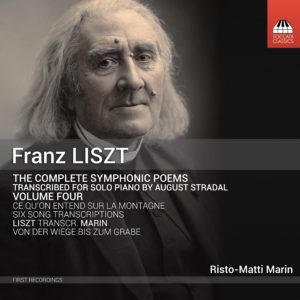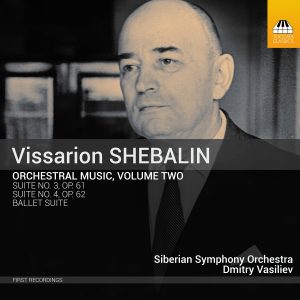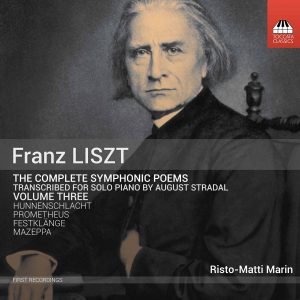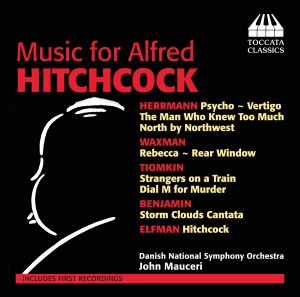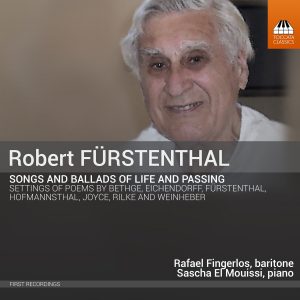Search Results for "Huawei H19-308_V4.0 Test Question Are Leading Materials - H19-308_V4.0 HCSA-Presales-Storage V4.0 🎦 Search for ☀ H19-308_V4.0 ️☀️ and easily obtain a free download on ⇛ www.pdfvce.com ⇚ 😶Pass4sure H19-308_V4.0 Exam Prep" – Page 3
Freda Swain: A Composer Unboxed
The composer David Hackbridge Johnson reacts with surprise to the piano music of the unknown Freda Swain (1902–85) – whose music, after her death, spent…
Support Martin’s Sponsored Slim
Martin Anderson, the founder of Toccata Classics, is – not to put too fine a point on it – quite a big bloke. And over…
Performing Wagner
USE CODE BB110 at Boydell & Brewer to save £35!
A Singer’s Perspective on the Major Tenor Roles
by Stephen Gould and F. Peter Phillips
Foreword – Katharina Wagner
Introduction – F. Peter Phillips
154 Pages
Hardcover
23.4 x 15.6 cm
25 colour and 22 b/w illustrations
Thym for a Song
Music: A Connected Art/Die Illusion der absoluten Musik: A Festschrift for Jürgen Thym on his 80th BirthdayVerlag Valentin Koerner, Baden-Baden, 2023Reviewed by Niall Hoskin Jürgen Thym…
Shostakovich: Complete Music for Piano Duo and Duet, Volume One
Much of Shostakovich’s orchestral music was first heard in versions he prepared for piano four hands or two pianos – but most of these transcriptions have languished unheard since those early performances. This series uncovers all the transcriptions prepared by Shostakovich himself, coupling them with all his original music for piano duo and duet. It begins with the first recording of his four-hand version of the Ninth Symphony.
Vicky Yannoula and Jakob Fichert, piano duo, piano duet
Dmitry Shostakovich: Complete Music for Piano Duo and Duet, Volume Two
Much of Shostakovich’s orchestral music was first heard in versions he prepared for piano four hands or two pianos – but most of these transcriptions have languished unheard since those early performances, usually given for friends and colleagues or for Party officials. This series, which uncovers all the transcriptions prepared by Shostakovich himself, continues with the first recordings of his two-piano versions of the Second Piano Concerto and the Fifteenth Symphony.
Pianists Min Kyung Kim and Hyung Jin Moon
The Music of Franz Schmidt: Volume 1: The Orchestral Music
With Personal Recollections by Hans Keller and the Autobiographical Sketch by Franz Schmidt
Extent: 190 pages
Composition: Demy octavo ~ Illustrated ~ Bibliography ~ Index
Dallapiccola on Opera: Selected Writings, Volume One
Foreword by Antal Doráti
Translated and Edited by Rudy Shackelford
Extent: 291 pages
Composition: Demy octavo ~ Illustrated ~ Index
Whom the Gods Love: The Life and Music of George Butterworth
Forward by Vernon Handley
Extent: 204 pages
position: Demy octavo ~ Illustrated ~ List of Works ~ List of Songs Collected ~ Bibliography ~ Index
Illustrations: 26 b/w; 47 music exx.
Ludvig Irgens-Jensen: The Life and Music of a Norwegian Composer
Extent: 368 pages
Composition: Royal octavo ~ Illustrations ~ LoW ~ Irgens-Jensen as Poet ~ Bibliography ~ Discography ~ Index of Irgens-Jensen's Music ~ General Index ~ Sampler CD of Irgens-Jensen’s Music
Franz Liszt: Complete Symphonic Poems transcribed by August Stradal, Volume Four
Although Liszt’s thirteen symphonic poems exist in two-piano transcriptions prepared by the composer himself, it was his Czech student August Stradal (1860–1930) who transcribed twelve of them for solo piano – versions which demand almost superhuman virtuosity. Stradal died before he could tackle the last of the symphonic poems, Von der Wiege bis zum Grabe; Risto-Matti Marin has made good that lacuna with his own virtuoso transcription, and adds six of Stradal’s transcriptions of Liszt songs for good measure.
Risto-Matti Marin (piano)
Vissarion SHEBALIN: Orchestral Music, Volume Two
Like his close friend and colleague Dmitry Shostakovich, Vissarion Shebalin (1902–63) knew a life of both celebrity and hardship: he was another of the composers condemned in the infamous 1948 Party congress in Moscow, and in later life he fought to overcome a series of crippling strokes. But his personality remained undaunted, as his music resolutely proves. This is the first recording of his Third and Fourth Suites and Ballet Suite, all three prepared from theatre music, and showing the lighter side of Shebalin’s symphonic muse, similar in style to the dance music of Shostakovich and Prokofiev. They have been recorded by the orchestra of his home town, Omsk, the capital of Siberia.
Siberian Symphony Orchestra
Dmitry Vasiliev, conductor
Liszt: Symphonic Poems, Volume Three
Although Liszt’s thirteen symphonic poems exist in two-piano transcriptions prepared by the composer himself, it was his Czech student August Stradal (1860–1930) who was to transcribe them for solo piano – versions which demand almost superhuman virtuosity. As the late Malcolm MacDonald writes in his booklet essay, Stradal’s versions ‘transform these revolutionary orchestral compositions into viable and effective piano works, faithfully preserving their masterly musical substance’. A Fanfare review of Volume One in this series had high praise for Risto-Matti Marin’s pianism: ‘One marvels at the stamina that can keep such a plethora of detail in place with such relentless élan; at his narrative shaping, which can turn up an already withering heat, so to speak, at climactic moments; at his overarching persuasiveness’.
Risto-Matti Marin, piano
Music for Alfred Hitchcock
Alfred Hitchcock commissioned his film scores from composers who were Hollywood's master-craftsmen. The concert items prepared from those scores — some of them in versions receiving their first recordings here — feature a dazzling variety of styles, from Baroque and jazz to dark Romanticism and angular angst, all using the orchestra with breathtaking virtuosity.
Danish National Symphony Orchestra, orchestra
John Mauceri, conductor
Robert Fürstenthal: Songs and Ballads of Life and Passing
Robert Fürstenthal, born in 1920, took the path of many Viennese Jews when Germany invaded and fled to the United States, where he made his living as an accountant; the fact that he had written a few songs in his youth was soon forgotten. The rediscovery, after 35 years, of the woman who had been his first love rekindled not only that flame but also his urge to compose, and songs – achingly lovely songs, laden with an autumnal sense of loss – flowed from his pen from that moment, preserving the spirit of fin-de-siècle Vienna under the Californian sun. He died in November 2016, aged 96, as this album was in preparation, knowing that some of his many songs had at last been recorded and were about to find their audience.
Rafael Fingerlos, baritone
Sascha El Mouissi, piano
David Maslanka: Music For Wind Ensemble
Although the American composer David Maslanka (1943–2017) wrote in a wide range of genres, it is for his generous output of music for wind band that he is best known. Three of the works heard here are in effect symphonic poems, all three infused with that big-hearted sense of space found in the best of American music and the quiet dignity of those endless open landscapes, but also energised by a powerful sense of freewheeling drama. The fourth piece is a charming and hugely engaging presentation of the instruments of the symphonic wind ensemble, a latter-day Peter and the Wolf – likewise intended for children and similarly bubbling with good tunes. The composer himself was closely involved in the preparation for these recordings – the last major project involving his music before his death – which now stand as a testament to a man much-loved in American musical circles.
Middle Tennessee State University Wind Ensemble
Michael Fleming, narrator (Track 2)
Reed Thomas, conductor (Track 1)
Rubén Darío Gómez, conductor (Track 2)
C. Allen Kennedy, conductor (Track 3)
Manuel Monge-Mata, conductor (Track 4)
Martin Gaines, conductor (Track 5)
Stay In the Know
JOIN THE TOCCATA NEWSLETTER
"*" indicates required fields
By visiting our site, you agree to our privacy policy regarding cookies, tracking statistics, etc.
